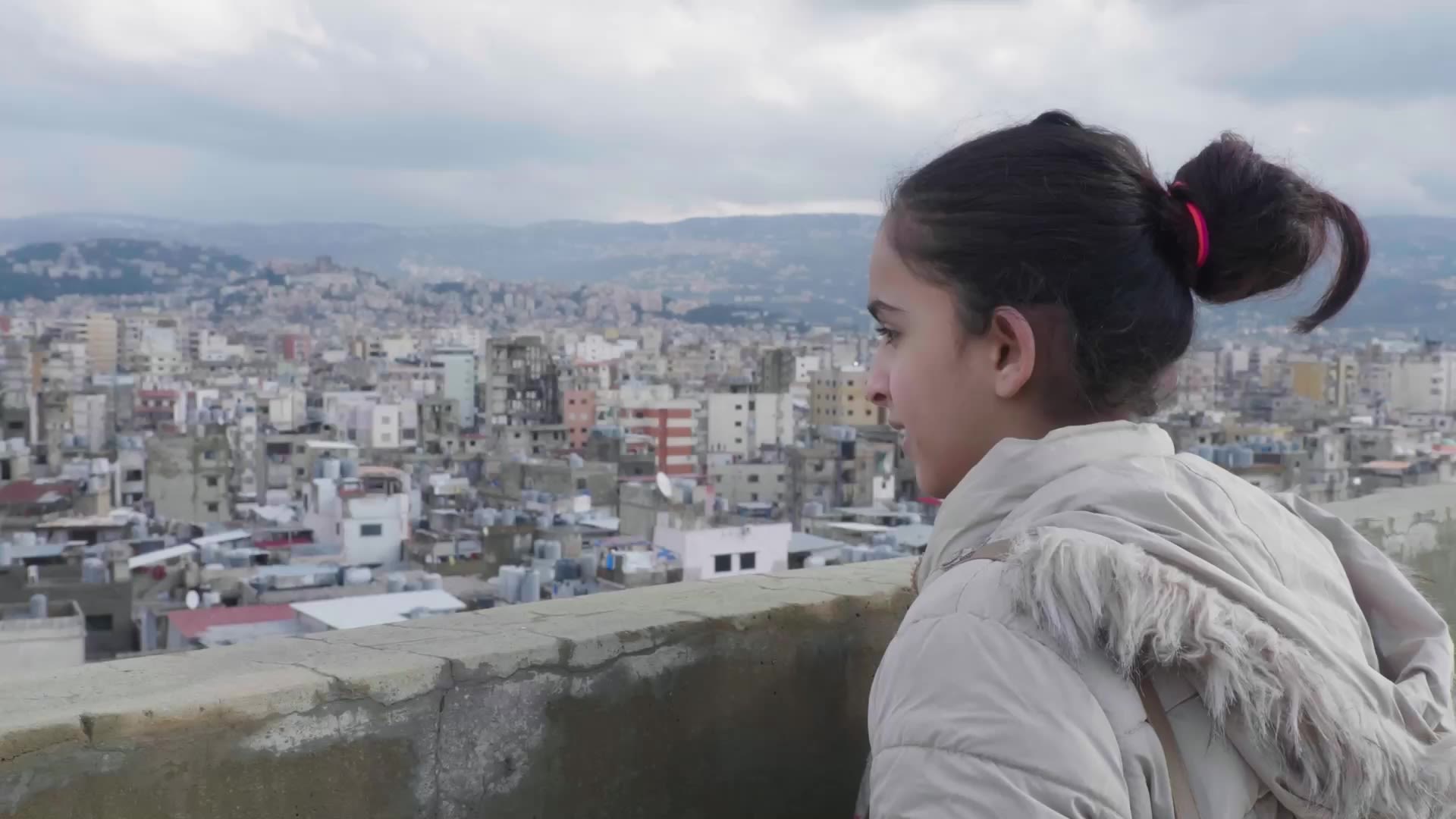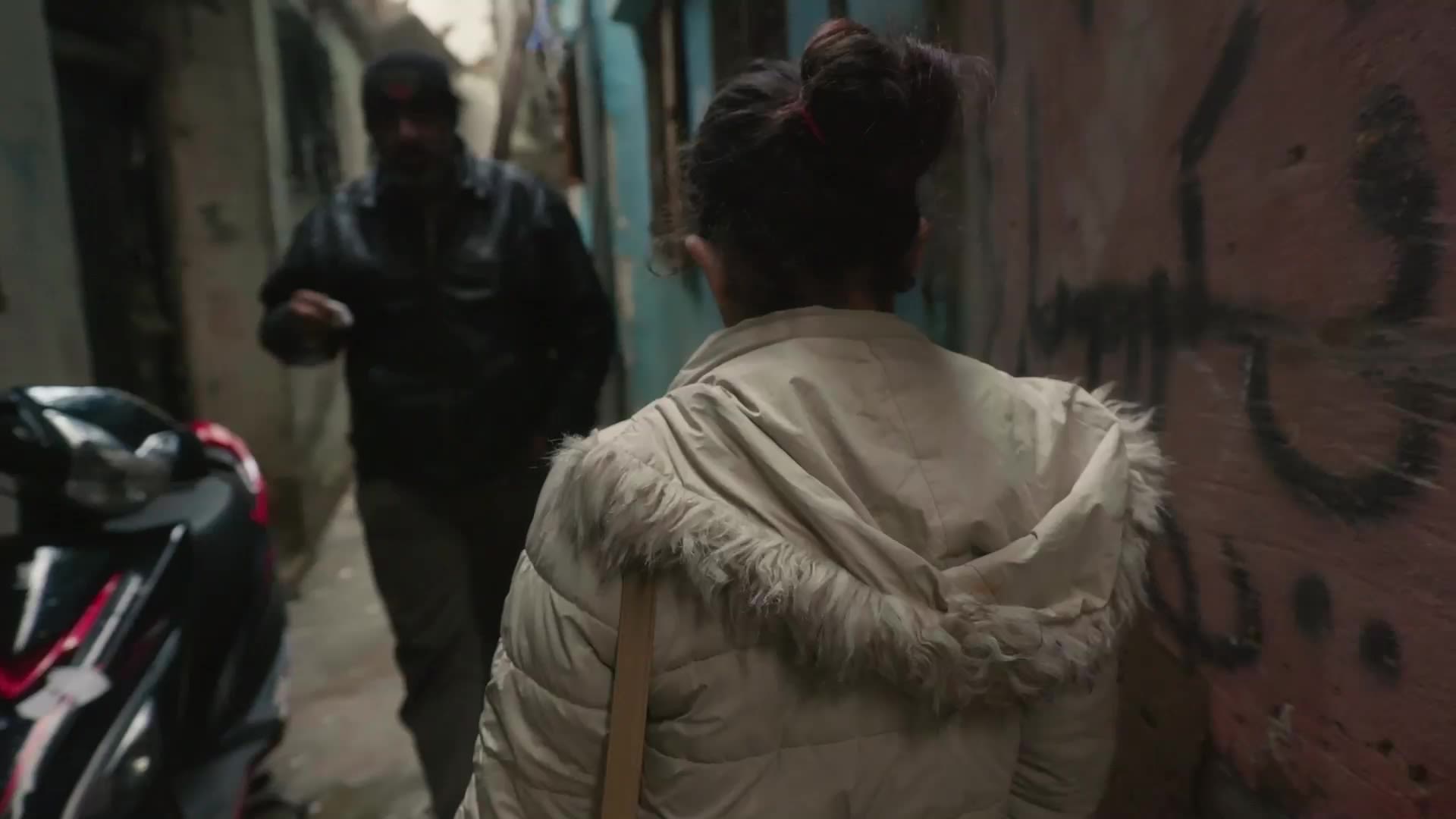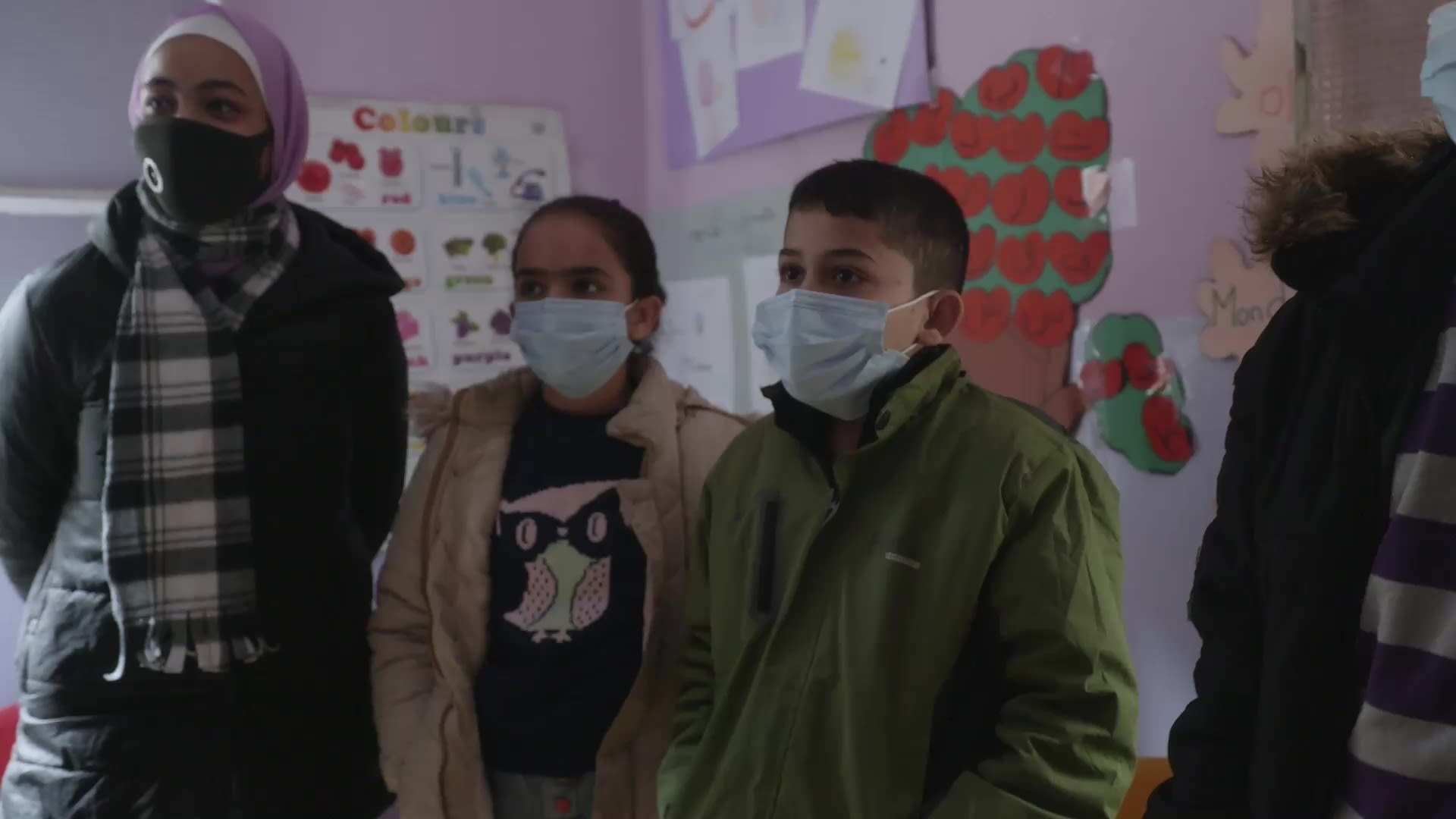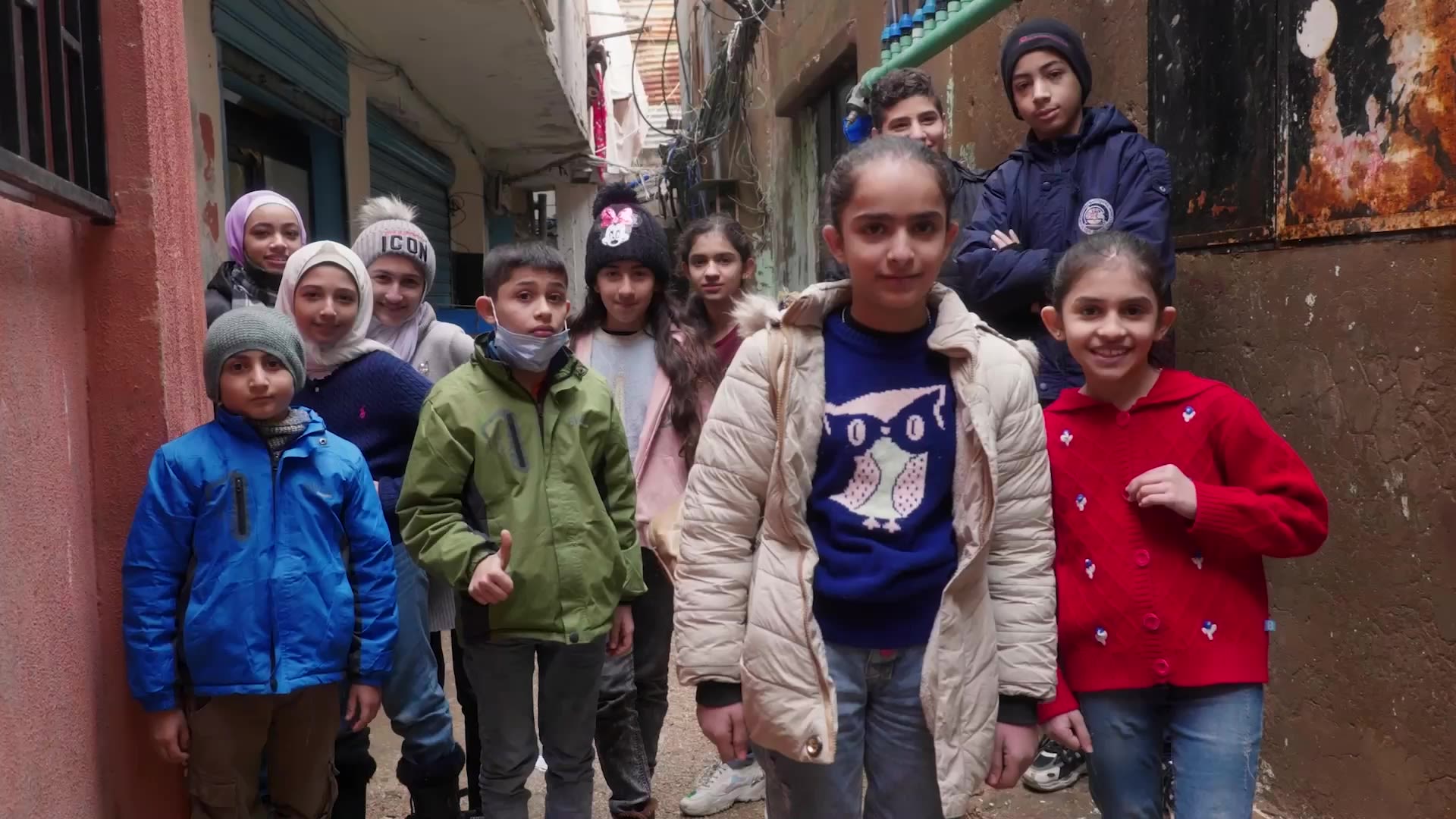"It's changed my whole life."
Just 13 years into her life, Ghinwa* had seen war, work, and economic ruin. At Save the Children's education centre in Lebanon, she finally saw hope.

Ghinwa was just five when she fled the war in Syria with her family. She left her home, school, and everything she knew behind, before eventually settling in a refugee camp in neighbouring Lebanon.
Ghinwa lives with her mum, dad, three brothers and two sisters. “My older sister is the closest person to me, I tell her everything… sometimes we fight but we still love each other.”

Though the family are much safer, life here is hard.
“The camp is huge, but the roads are narrow, and the buildings are very close together," says Ghinwa.
“There are electric wires everywhere that all cross over one another. When it rains, it causes an electric current in the metal objects on the street, so when it’s wet the kids can’t play outside - there was a fire once because of all the wires.
“There is so much rubbish in the camp, it is not clean, and no sewage system: there is waste water on the streets, and no clean water – and always the smell of rubbish. When the kids play on the street, they come back home with dirty clothes because of the sewage on the streets.”
Soon after arriving in Lebanon, Ghinwa’s father suffered a severe stroke.
With her dad seriously ill, and her brother needing regular medical treatment, Ghinwa had to support her family by selling packs of tissues at a busy Beirut junction.
Forced to work while kids her age were at school, Ghinwa was left feeling lonely and hopeless about her future.

But it wasn't just personal circumstances making life so tough for Ghinwa. In one nightmarish year, three catastrophic national events affected everyone in Lebanon...
Economic collapse
Lebanon's economy spiralled out of control in 2019. The World Bank describes it as one of the three worst economic crises in the world in the last 150 years.
Poverty increased dramatically. Basic services, such as education, healthcare, and electricity, started to collapse. In 2022, the price of food tripled.
“Bread used to cost us 1,000 Lebanese Lira but now costs 12,000,” Ghinwa told us. “They used to sell 6 eggs for 1,000, but now they cost 20,000.”
“Now I have to work more hours, sometimes waking up early and coming back when it is dark,” she says.
“I used to have a meal in the morning and a meal for dinner. Now sometimes I eat at night, sometimes I don’t.”
Global pandemic
Covid-19 compounded the crisis in Lebanon. In early 2020, lockdowns that attempted to control the spread of the virus squeezed household incomes. Ghinwa couldn't work, and her family had to borrow money to get by. Barely leaving their home for weeks on end was tough on her whole family.
“It had an impact on my well-being, because we were home all the time and we couldn’t go out,” says Ghinwa. “At home we were fighting, me and my siblings, we were screaming at each other,” says Ghinwa.
A nightmare unfolds
On August 4 2020, the day after the Lebanese government lifted lockdown, the country was rocked again. A massive explosion at a port warehouse in Beirut killed 218 people, while making 300,000 homeless.
“Suddenly the ground started shaking as if there was an earthquake. We were terrified,” remembers Ghinwa.
It triggered memories of traumatic experiences of the Syrian war. “I remembered Syria,” says Ghinwa. “I thought we were going to leave again but I didn’t know where we could go.”

Save the Children distributed thousands of hygiene kits during the covid pandemic. Even simple things like masks and hand wash had become too expensive for most families.
Save the Children distributed thousands of hygiene kits during the covid pandemic. Even simple things like masks and hand wash had become too expensive for most families.

Ghinwa at Save the Children's education centre near her home in Beirut
Ghinwa at Save the Children's education centre near her home in Beirut

8-year-old Sonia plays with a Save the Children support worker at a child friendly space we set up quickly after the Beirut explosion. Moments before the blast, Sonia blew out 8 candles on her birthday cake.
8-year-old Sonia plays with a Save the Children support worker at a child friendly space we set up quickly after the Beirut explosion. Moments before the blast, Sonia blew out 8 candles on her birthday cake.
The turning point
“Before I went to the centre I couldn’t read or write. I had no hope for my future, I had no dreams."


Save the Children teamed up with a local charity to set up an education centre in Ghinwa's refugee camp. Teachers there help mostly Syrian children to catch up on the learning they've missed, while giving them a safe place to learn and rebuild their confidence.
“Since attending the education centre I feel like my future has hope," says Ghinwa. "I believe in myself - anything is possible If I study and focus hard I can achieve anything I want.”
It has transformed her life. For the first time since leaving home, Ghinwa has learned to read and write and made new friends.
"The centre has given me trust in myself and made me realise that nothing is impossible, anything can happen. When we focus and study well we can achieve everything that we want."
But Ghinwa's journey doesn't end here.
Last year, she stood up for the rights of child refugees like her on the global stage.
"I was invited to speak at a conference in front of people all around the world. I felt very confident."

"I felt like I was speaking on behalf of all girls, all children, for all our struggles and the need to protect our rights.
I loved it. I emptied all that was within my heart.”

Against all odds, Ghinwa's remarkable journey continues. She's still learning at our education centre, and she's finally enrolled at school. And while she's no longer working on the street selling tissues, she still works in a shop for few hours each day to help her family make ends meet. One of our partner organisations in Lebanon is making sure work doesn't get in the way of her learning.
“Education for a girl is like a weapon she can fight with, if she is aware and educated, she can defend herself because she has learned more.
I wish to become a lawyer in the future, defend girl’s rights and children’s rights, to stop child labour, try to help them financially, make them go to schools.
I'd like to do that so I can feel useful, and that I have been helpful to someone else.”

Save the Children is privileged to be a part of Ghinwa's story - and those of many incredible children rebuilding their lives, miles from home.
Every minute, every day, all around the world. Our proudest moments are theirs.
*name changed here to keep her safe.
